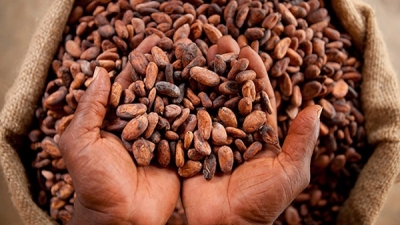
The highest decision-making body of unionised workers in the cocoa sector, the Supreme Consultative Council of the Ghana Cocoa Board (COCOBOD), has expressed confidence that cocoa smuggling could be reduced by as much as 80 per cent if a new pricing arrangement proposed by COCOBOD takes effect.
Currently, the producer price is set at GH¢3,100 per 64kg bag, marking a marginal increase of 0.03 per cent compared to the previous rate announced in September for the 2024/2025 crop season.
The adjustment, which equates to GH¢49,600 per tonne, aims to align cocoa prices with prevailing market conditions and provide much-needed support to Ghanaian cocoa farmers.
The Chairperson of the council, Isaac Ansah, said this was because the planned price adjustment, potentially higher than what was currently offered in neighbouring Côte d'Ivoire, would drastically curb the incentive for illegal cross-border trade.
"If the price goes high, maybe even more than what Cote d'Ivoire is offering, the issue of smuggling, if not taken away, will reduce by more than 80 per cent,” he said.
Mr Ansah was speaking on the sidelines of the Workers’ Day (May Day) celebrations last Thursday at the Black Star Square in Accra.
It was on the theme: “Resetting pay and working conditions: the role of stakeholders,” and brought workers and unions from all four corners of the country to press home their demands colourfully and festively.
Touching on galamsey (illegal mining) that has been a headache for cocoa farmers, Mr Ansah described it as a complex, nationwide problem deeply rooted in poverty, lack of opportunity and politicisation.
He emphasised that simply banning galamsey without providing alternative livelihoods, such as jobs or factories, was ineffective and unjust, especially for rural communities dependent on it for survival.
“We cannot say stop galamsey when we are not opening avenues for them to go and work when we are not opening the factories, when we are not allowing them to create businesses.
“These guys are not willing to go to the bush. It’s poverty that has pushed them there,” he said.